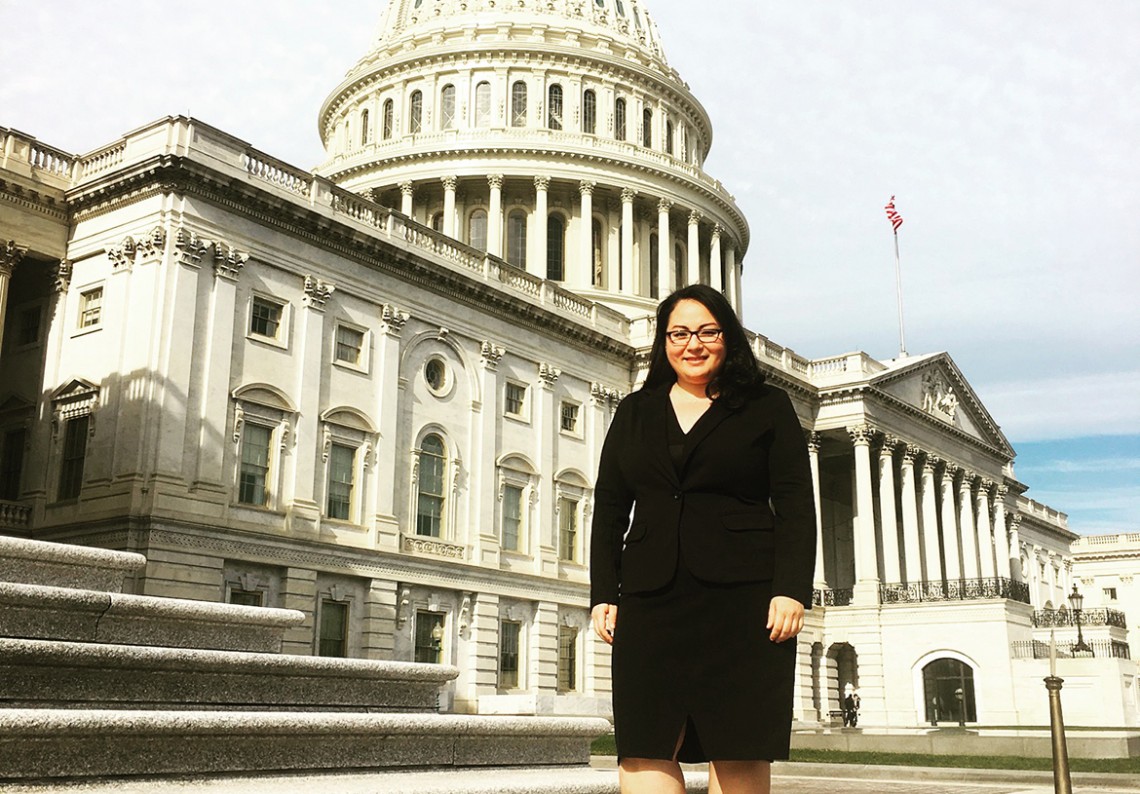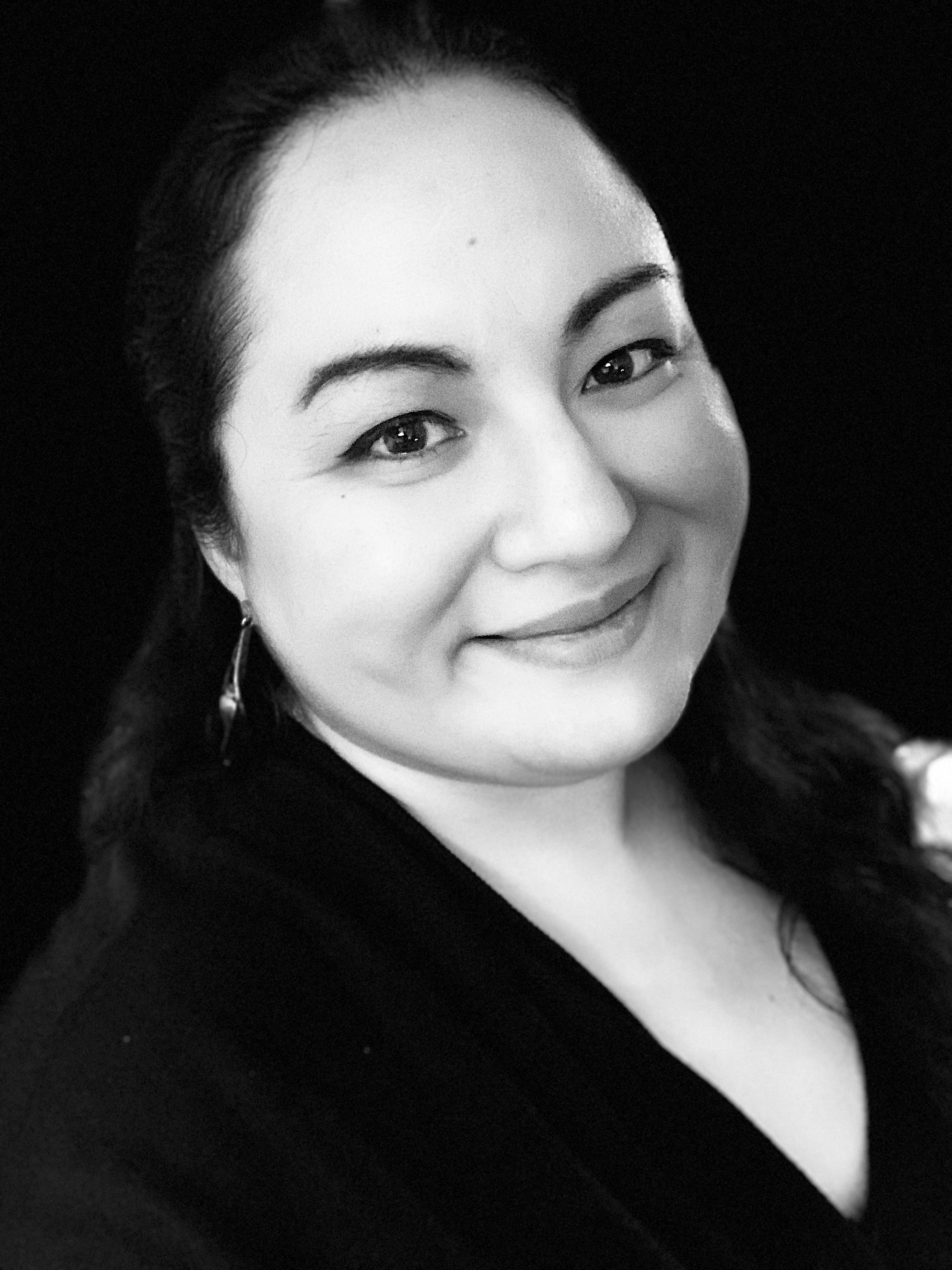From criminal justice to social justice: Alumna on a mission to help others
Professionally and personally, Naomi Adaniya is improving lives through public service
By Denise Blough

From the moment Naomi Adaniya ’10 ’13 ’16 first stepped foot on Ohio State’s campus, it was clear her mission was to lift up others.
While pursuing three graduate degrees — an MPH, an MA in geography and a PhD in health services management and policy — Adaniya immersed herself in projects helping underprivileged children and aimed at reducing infant mortality. She volunteered in the office of pastoral care at the Wexner Medical Center and dedicated herself to being an effective, supportive mentor, earning the Graduate Associate Teaching Award in 2016.
“It’s part of my Ohio upbringing,” said Adaniya, who grew up in Westerville as a first-generation American. “If I can make an impact and make the world brighter around me, then it’s a good use of my time and effort.”
Upon graduating, she quickly earned a position at the U.S. Department of Justice, where she currently serves as a senior supervisory data and policy analyst in the Office of Policy and Legislation Criminal Division. In this role, she examines criminal justice data and proposed legislation, helps develop federal sentencing guidelines and informs decisions about national criminal justice policies.
Adaniya’s time at the department has also included overseeing the Health Care Fraud and Opioid Fraud and Abuse Detection units, during which she co-led three coordinated law enforcement efforts that resulted in charges against 1,300 individuals (and earned her Ohio State’s William Oxley Thompson Alumni Award). She’s contributed to national reports on opioid trends; established an initiative supporting interagency human trafficking, forced labor and organized crime working groups; and modernized data reporting processes.

“A lot of the work that I’m doing — and this is why I chose to do it — has an immediate impact on people,” she said. “The only jobs I applied to out of Ohio State were in government, because I wanted something where it felt like I was making a difference, and oftentimes that means protecting people who are voiceless.”
One of the biggest challenges of the job is navigating the many competing priorities and needs of vulnerable groups, Adaniya said. Today, her projects are addressing child exploitation, forced labor and human smuggling.
“To even get to do one tiny thing that helps make these scenarios better or to make it so less kids are hurt — that’s a win,” she said. “It motivates me to make sure that what I’m doing is making the world a better place.”
Adaniya carries this compassion and duty to public service with her throughout her personal and social life. Honoring her Latina heritage, she’s active with the Congressional Hispanic Caucus Institute and continues to mentor students. She’s engaged with Washington D.C.’s Metropolitan Police Department Community Engagement Academy, which fosters dialogue between police and citizens.
And she’s currently president of the College of Public Health Alumni Society, through which she’s formed listening sessions for first-generation students and served as a dean’s advisor and member of the college’s Diversity, Equity and Inclusive Excellence Committee.
“Naomi is an incredibly bright person who is so passionate about her work in health policy. She is highly committed to mentoring students from historically underrepresented groups in higher education, which is demonstrated through her work at the college,” said Professor of Epidemiology Amy Ferketich, one of Adaniya’s former professors who continues to work with her on student initiatives. “We’re fortunate she chose to study at Ohio State.”
Adaniya said she encourages students to take advantage of opportunities and challenge themselves to go outside their comfort zones – especially when it means helping others.
“I’m in the position that I’m at because the help of others, either directly or indirectly,” she said.
As for what the future holds?
“I think a lot about space, place and time,” Adaniya said. “Increasingly the general public is realizing the degree to which our broader societal challenges interconnect with public health. As our College of Public Health graduates prove, public health practitioners are ready to address not just COVID-19 but issues in criminal justice, education, poverty, food production and health access.”